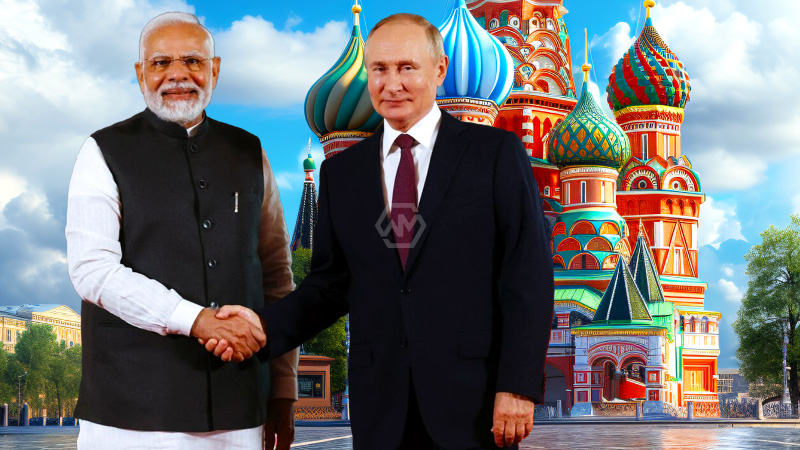- Modi‘s visit aims to bolster strategic ties with Russia in defense and energy sectors.
- Discussions to explore new economic opportunities via routes like the North-South Transport Corridor.
- Importance of India-Russia partnership amidst Russia’s international challenges and global sanctions.
Prime Minister Narendra Modi’s visit to Moscow signifies a pivotal moment in India’s foreign policy, emphasizing the deep-rooted strategic partnership between India and Russia. The trip, marked by discussions with President Vladimir Putin
aims to reinforce collaboration in defense and energy sectors, crucial pillars of the bilateral relationship. Beyond traditional areas, both leaders are expected to explore new avenues for economic cooperation, leveraging initiatives such as the North-South Transport Corridor to enhance connectivity and trade between regions.
Strategic Diplomacy: Modi’s Moscow Visit and India’s Global Alliances
Amidst Russia’s geopolitical tensions with the West and economic isolation, India emerges as a significant partner for Moscow, offering avenues to sustain global influence and economic relevance. This visit underscores India’s strategic approach to diversify its international partnerships while maintaining robust ties with longstanding allies like Russia, navigating complex global dynamics to safeguard its national interests.
India’s approach to strengthen ties with Russia comes at a time when global geopolitics are in flux, with Russia facing international sanctions and seeking partnerships to maintain its global influence. For India, deepening relations with Russia not only supports its defense modernization efforts but also provides strategic leverage in international forums. Beyond bilateral interests, discussions are likely to encompass regional and global issues such as the situation in Ukraine and economic developments in Africa, reflecting India’s proactive stance on international affairs.
As Modi engages with Putin, the visit underscores India’s commitment to diversifying its international partnerships while maintaining strong ties with traditional allies. This diplomatic engagement aims to foster mutual understanding and cooperation on issues of regional security, economic integration, and global stability. By strengthening its relationship with Russia, India seeks to navigate the complexities of a multipolar world, balancing its interests amidst shifting global dynamics.
Prime Minister Modi’s visit to Moscow represents a significant stride in India’s diplomatic engagements, reinforcing the strategic depth of the India-Russia partnership amid global uncertainties. As both countries navigate geopolitical challenges and seek economic opportunities, this visit underscores India’s commitment to enhancing bilateral cooperation while contributing to regional and global stability.
External Affairs Minister S. Jaishankar highlighted, “India’s economic relationship with Russia has grown tremendously… It presents a great opportunity for PM Modi and President Putin to engage in direct dialogue.”



